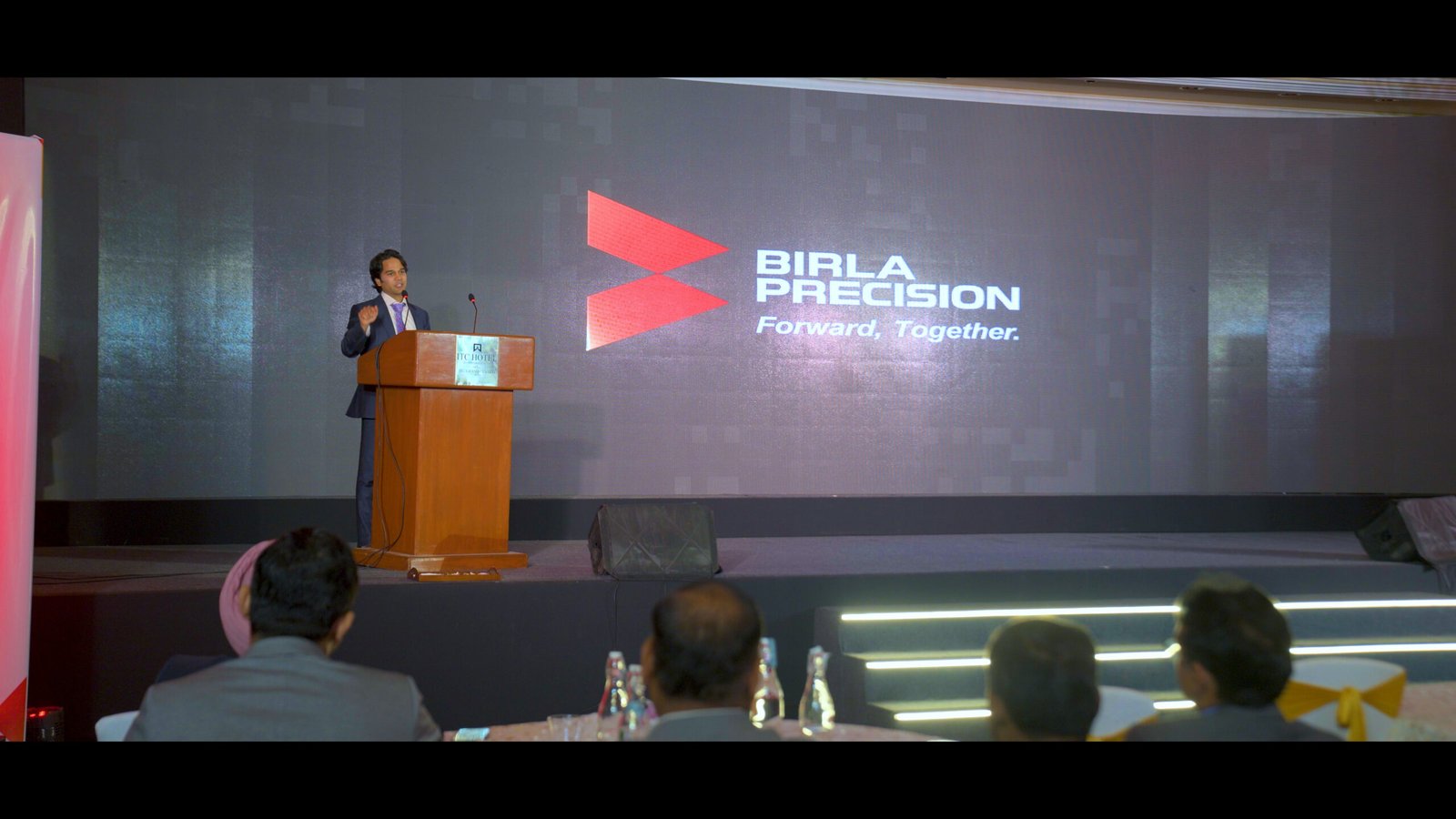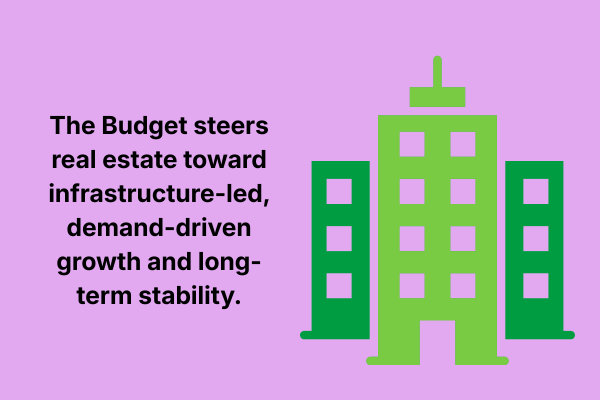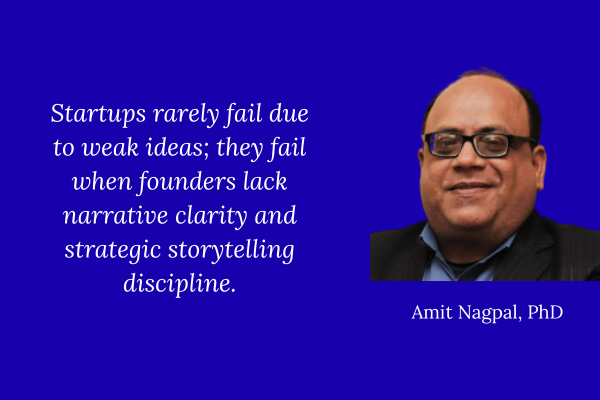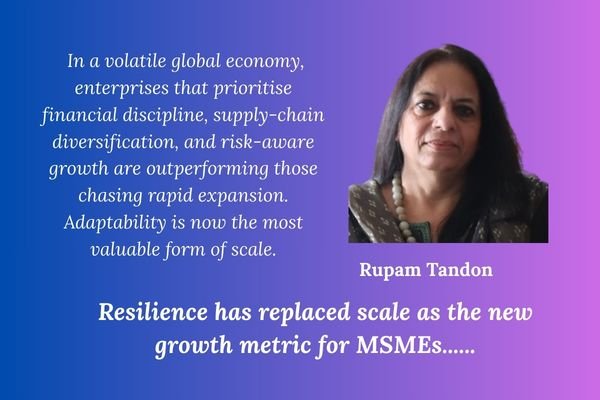Sandeep R Manakeshwar explores the critical role of India's 63 million MSMEs in driving national economic growth, contributing significantly to GDP and exports. Despite their immense potential, these enterprises face persistent challenges, including informality, limited access to finance and technology, and skill deficits. Manakeshwar delves into these bottlenecks and offers strategic policy recommendations to foster a digitally empowered, globally competitive, and innovation-led MSME sector, vital for India's sustained economic ascent.
India’s Micro, Small, and Medium Enterprises (MSMEs) form the foundation of the nation’s industrial fabric. With over 63 million enterprises contributing 29% to GDP and 45% to exports, MSMEs play a pivotal role in employment generation, manufacturing output, and inclusive growth. Yet, they continue to face structural, financial, and regulatory bottlenecks that stifle their global competitiveness.
Indian MSMEs grapple with a myriad of challenges, including difficulties in timely access to information, inadequate financial resources, a shortage of quality human capital, limited access to credit and low-cost technology, and widespread informality that impedes their growth trajectory.
According to an enterprise survey by the World Bank, the following are the biggest obstacles MSMEs face in India:
1. High Informality & Product Standardization
Over 90% of MSMEs operate informally, restricting their access to credit, government schemes, and global value chains (GVCs). As global manufacturers seek stronger connections, integrating MSMEs into GVCs has become imperative. Alignment with GVCs offers significant opportunities such as better market access, enhanced standards, and promoted technological adoption, along with learning and growth opportunities. However, what hinders MSMEs is the requirement for maintaining stringent quality standards and the need for speed and adaptability. A gap in strengthening the link between technology, innovation, and standardization is impeding MSME competitiveness and robust upstream integration into GVCs.
Against this background, formalization can also be a solution. The advantages of formalization include access to a range of government subsidies and incentives, legally binding business agreements, tax benefits, access to established financial channels, and additional motivators. With improved access to these resources, enhancing productivity becomes more feasible through technological advancements in production and digitalization, marking the primary step toward establishing MSMEs in the Global Value Chains (GVCs).
The transition to formalization through platforms like Udyam Registration has gained traction but remains incomplete due to burdensome compliance and a lack of adequate incentives.
2. Access to Finance
The perception of MSMEs as high-risk and commercially unviable entities has resulted in limited access to formal financial assistance. Indian banks, in particular, are hesitant to finance small enterprises due to reasons such as the inability to provide collateral, high levels of non-performing assets, high transaction costs, and difficulties in verifying the creditworthiness of applicants.
Due to constraints in accessing bank credit, MSMEs are forced to employ alternative sources of finance. While accessing finance from formal institutions, MSMEs face several barriers, including the need for collateral or guarantees, inflexible policies, high lending rates, lengthy procedures, entrepreneurs’ limited financial knowledge of available schemes, high service fees, and complex regulatory frameworks. This restricted access to financial resources severely hampers the growth and survival prospects of Indian MSMEs.
Despite policy interventions like CGTMSE (Credit Guarantee Fund Trust for Micro and Small Enterprises) and SIDBI (Small Industries Development Bank of India) support, credit penetration remains low. Only 19% of the estimated ₹99 lakh crore MSME credit demand in FY21 was met by formal channels. High interest rates, collateral demands, and a lack of tailored financial products further widen this credit gap.
To increase access to finance, bolstering confidence in the abilities of MSMEs and implementing remedial measures for investors is necessary.
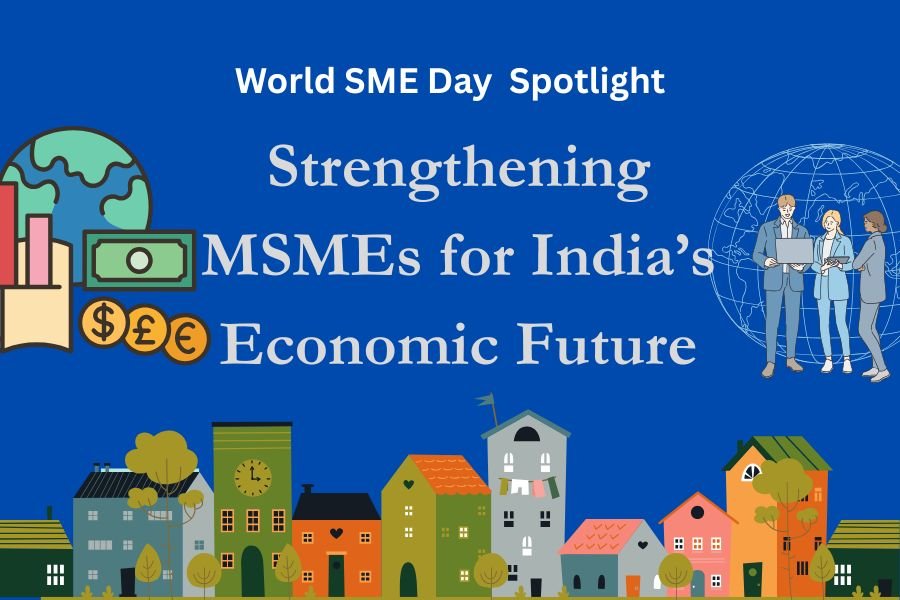
3. Skill Deficits and Labour Mismatch
Between 2014 and 2022, the number of skilled employees in medium, small, and large enterprises witnessed significant growth, with increases of 19.94%, 20%, and 12.72%, respectively, as reported in the World Bank Enterprise Survey data.
A 2009 study by NCAER (National Council of Applied Economic Research) on India’s Textile and Clothing sector found a massive gap between the availability of skilled labor and the needs of the industry. It recommends industry-specific skill development and revisions in labor law to overcome these barriers. The study points out that a highly skilled labor pool is required to move towards value-added products, which is essential for the industry’s development through innovation and R&D. The scarcity of skilled labor is a significant obstacle for MSMEs, hindering their capacity to innovate, enhance production standards, and scale their operations. These are essential steps for establishing a strong foothold in Global Value Chains.
4. Technological Gaps and Low Innovation
Given the significance of the MSME sector, it is crucial to ensure the competitive position of Indian SMEs, both nationally and internationally, with technology and innovation serving as pivotal factors. Research has highlighted the importance of investing in Research and Development (R&D) activities, improving quality control processes, and fostering innovation ecosystems to enhance MSME competitiveness. Moreover, the ability to adapt and incorporate emerging technologies, such as digitalization and automation, is increasingly vital for competitiveness.
On the innovation front, India holds the 40th position among 132 economies in the 2023 Global Innovation Index. Indian manufacturing relies heavily on labor-intensive activities, hindering its potential in GVCs. Despite improvements since 2015, India’s innovation performance needs enhancement, especially within MSMEs, to boost competitiveness.
5. Infrastructure and Logistics Constraints
In India, inadequate infrastructure support is one of the major non-financial barriers faced by MSMEs. A primary concern for the growth and development of MSMEs, as reported by the Small Industries Development Bank of India (SIDBI) in 2010, is the lack of infrastructure support. Furthermore, many MSMEs in rural and semi-urban areas still face a lack of essential infrastructure such as power, roads, and communication services, which hinders their efficiency and overall development.
In 1998, the Ministry of Micro and Small Enterprises established ‘The Integrated Technology Upgradation and Management Programme’ (UPTECH). This policy was revised twice and later renamed the “Micro and Small Enterprises – Cluster Development Programme (MSE-CDP)” in 2010. This scheme aimed to develop market-linked infrastructure where development facilities and centralized distribution are in collaboration with state governments, setting up exhibition centers, and establishing testing centers to tap international markets.
Despite these schemes, infrastructure remains fragmented and underutilized due to poor coordination and monitoring.
6. Policy Environment
Over the years, various policies, schemes, and initiatives such as ECLGS, Start-up India, SAMRIDH, Start-up India Seed Fund Scheme (for SMEs and MSMEs), and Atmanirbhar Bharat, along with tax reforms, have created a favorable environment and given room for SMEs to scale. While these efforts are contributing to the development of MSMEs, there is limited awareness about the support systems and resources created to assist this sector. Furthermore, enterprises face challenges comprehending and accessing these initiatives.
There is a need for thorough surveys to identify the technical and financial requirements of MSMEs for a better understanding of the ground reality. Additionally, the engagement of larger enterprises with advanced expertise will bolster the growth of MSMEs.
Despite the implementation of several government initiatives, visible deficiencies within this sector require attention. A crucial measure in bridging these gaps involves conducting impact evaluations and investigations of pivotal government programs and formulating policies that highlight the needs and challenges encountered by the MSME sector. This will aid in addressing the intricacies and implementing tailored strategies necessary for resolving the complexities in this sector.
Policy Recommendations for a Competitive Future
1. Strengthen Credit Architecture
- Bring CGTMSE (Credit Guarantee Fund Trust for Micro and Small Enterprises) under regulatory oversight.
- Expand SIDBI’s wholesale lending to NBFCs (Non-Banking Financial Company).
- Promote credit insurance and relax PSL (Priority Sector Lending) norms for bank lending via NBFCs.
2. Foster Formalization via Incentives
- Streamline Udyam registration.
- Simplify GST compliance and labor laws.
- Use banks and MFIs (Microfinance Institution) as formalization facilitators.
3. Reimagine Skilling Ecosystems
- Introduce modular, cluster-specific training.
- Encourage cost-sharing skilling models.
- Form state-level occupational standards boards.
4. Accelerate Technology Adoption
- Create AI-accessibility platforms for MSMEs.
- Provide subsidies for digital tools and cloud-based technology.
- Link MSMEs with national R&D labs and universities.
5. Infrastructure Investment
- Build shared logistics and industrial hubs.
- Offer power-sharing and affordable industrial spaces.
- Promote renewable energy access for rural MSMEs.
Conclusion: A Call for Adaptive Policy Making
Indian MSMEs do not need a one-size-fits-all policy—they need a resilient, responsive, and evolving ecosystem that keeps pace with economic, technological, and global trends. If India is to harness its full economic potential, the MSME sector must shift from a fragmented and informal base to a digitally empowered, globally competitive, and innovation-led growth engine. This transformation will require collaboration across government, industry, and civil society, with policies that are both ambitious and grounded in on-the-ground realities.
Author Profile
-
Certified Independent Director and Mining Professional, Sandeep R Manakeshwar brings over two decades of expertise in sustainable growth across the mining sector, MSMEs, and the start-up ecosystem. He offers strategic leadership in ESG transformation, stakeholder engagement, and corporate governance. With a strong background in corporate communications, policy advocacy, and digital integration, he aligns business performance with long-term sustainability goals. Actively engaged in CSR and community development, Sandeep is also a prolific writer and speaker on governance, climate resilience, and innovation.
Can be reached at: sandeep.document87@gmail.com
